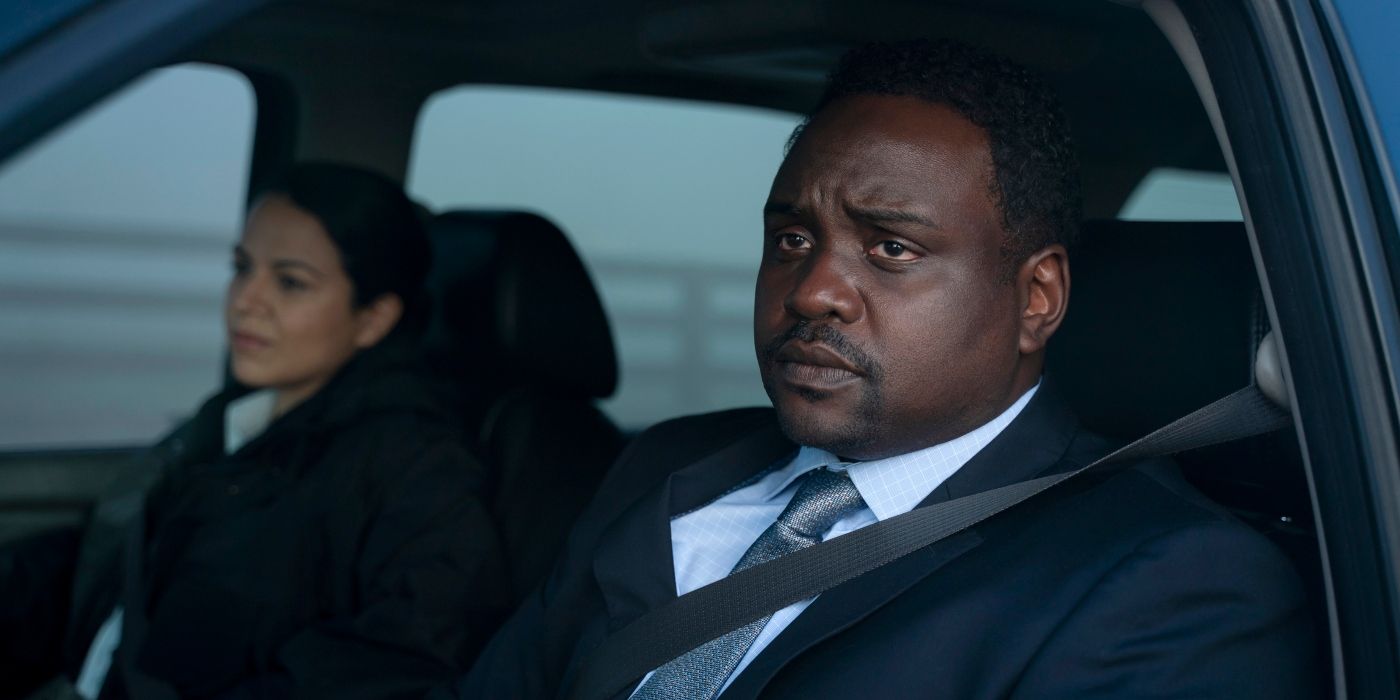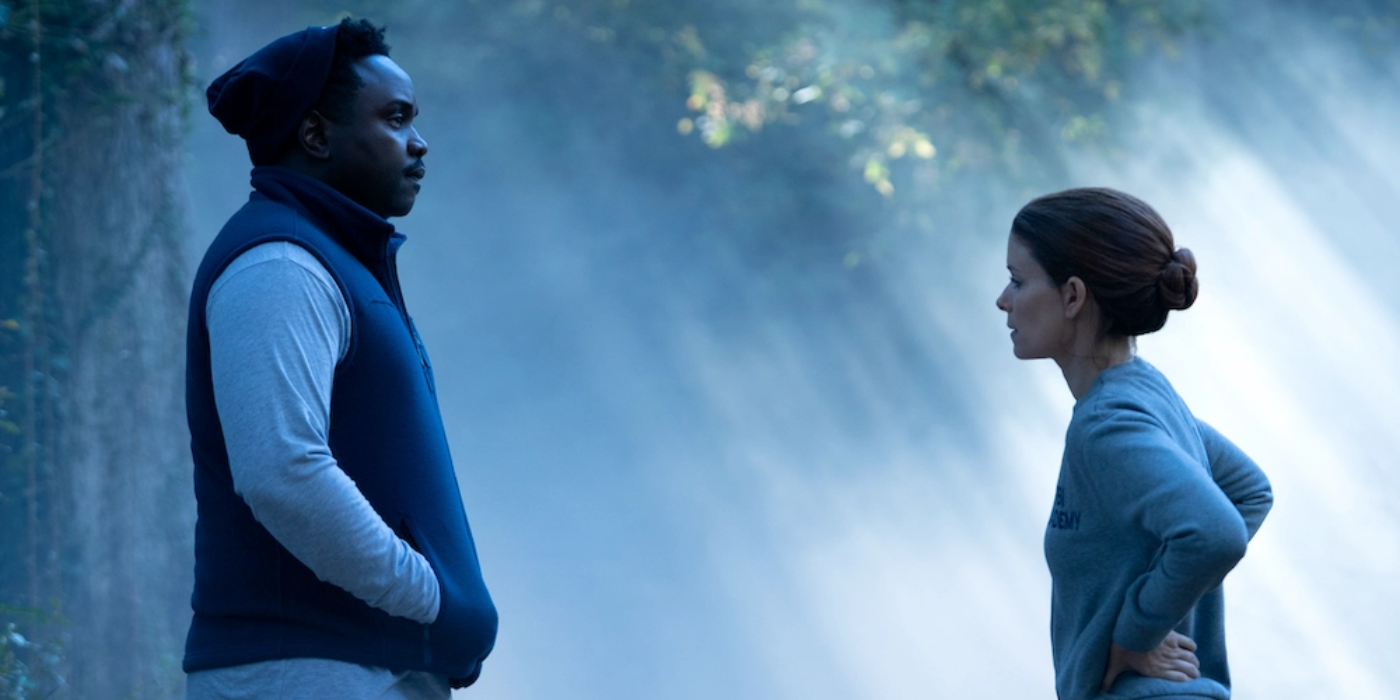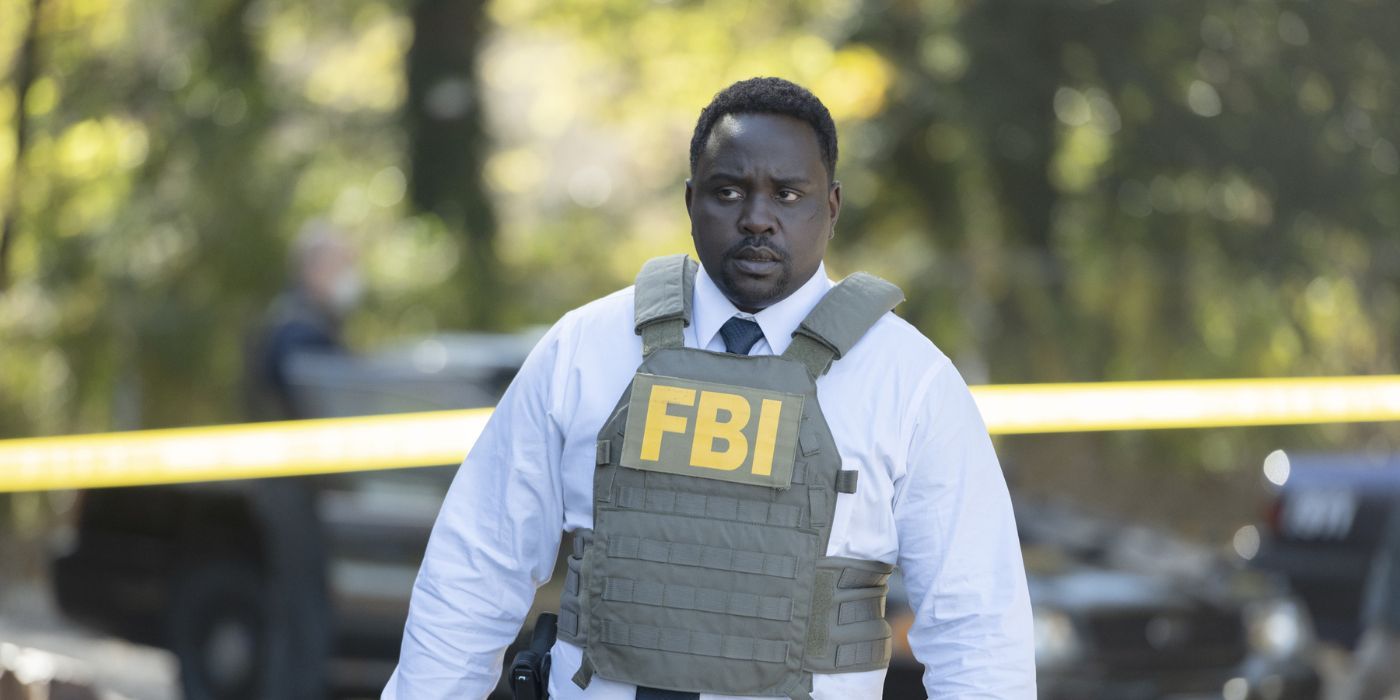Whenever a series that centers around the FBI gets announced, you can’t help but think that you’re about to witness another entry into the wide array of police procedural shows that have been extremely popular throughout the years. Of course, there’s a reason why those shows are popular. The case-of-the-week format doesn’t demand that viewers commit to watching every single episode. It allows casual spectators to tune in every once in a while and have no trouble understanding what’s going on. Class of ’09 certainly has that feel, but it cleverly plays with procedural tropes in order to deliver an ambitious story.
Set across three different timelines, the series created by Tom Rob Smith (MotherFatherSon) follows Poet (Kate Mara), Tayo (Brian Tyree Henry), Lennix (Brian J. Smith), and Hour (Sepideh Moafi) through “the past” (2009 and backward), “the present” (2023) and “the future” (2034), as their individual careers inside the Federal Bureau of Investigation begin, flourish, transform and sometimes crumble. As we jump from era to era, their perception of the Bureau changes over a long stretch of time.
The first half of the season of Class of ’09 showcases familiar tropes from procedural shows, but then quickly uses its time dynamics to subvert them. That’s how we get presented with cases that only pay off years later, or are surprised by an investigation whose resolution unfolds in the blink of an eye — because the story is able to jump back and forth in time and resolve what would be a season-long arc in a matter of minutes. In this instance, the rushed structure is hardly a problem because Class of ’09 uses its case to tell a bigger story that you only start to comprehend as the connections between the timelines become clearer and clearer. In a normal procedural, the case presented in a single episode hardly ever resurfaces later on. Here, it manages to act as part of a much bigger picture.
In order to comprehend this bigger picture, however, it’s necessary to stick with the series from start to finish. As the story unfolds, one realizes that the future segment of Class of '09 is a slow-burn thriller that carefully puts its pieces in place before fully diving into its sci-fi elements. In the first couple of episodes, it’s possible that you’ll be left under the impression that the 2034 portion of the show is just a gimmick to look cool. If you're patient, you’ll be taken aback when you realize that the stakes in the future are surprisingly high as the setting starts to behave like a really uncomfortable and paranoia-filled episode of Black Mirror.
This brings us to another great win for Class of ’09. When it comes to investigative procedurals, TV shows or even movies are hardly about the institution itself. In that regard, the FX series strikes gold when it decides to dissect the FBI as much as possible. Its depiction ranges from its screening process to the training of new agents while not ignoring that the Bureau has also been plagued with misogyny and racial bias. Class of ’09 is also tremendously aware that an espionage agency has its own set of problems that involve ethics, how technology is handled, and agents’ mental health. This is best explored with Poet, whose arc throughout the series (from starry-eyed new agent to potential whistleblower) takes us on an intriguing journey that makes us eager to uncover secrets along with her.
All in all, it’s a great surprise to get halfway through Season 1 of Class of ’09 and realize that the series utilizes its three timelines to its full advantage, as opposed to just a narrative trick to make it more interesting. The “past” of the series is where we really get to know the main characters and what they’re made of, as well as discover some cool information about the history of the FBI. The “present” is more standalone by comparison, but it’s easy to realize we’re following separate cases for a reason. The “future” brings urgent discussions to the table and has a series of valid points to make about surveillance, individual behavior, crime, bias, and our misguided trust that AI is capable of making nuanced decisions.
Needless to say, this is all helped by excellent performances from the main cast. However, it’s best to pay attention to Mara and Henry who are clearly the conductive wires that represent two extremes in the story. The series’ format also allows the actors to play with their characters in the sense that their evolution in each timeline and their individual performances are constantly juxtaposed by the show’s structure. This greatly helps us understand where each of them is coming from as well as where they're going. It’s also great to spot the series’ attention to detail when it comes to its cinematography and production design. As the show dives into a bleaker and bleaker future, the colors start disappearing from the frames, and the appropriate sense of isolation and darkness is prevalent in the timeline that is the most dangerous and unknown.
Class of ’09 plays out like a show that makes great use of the time that it is given. It provides the rare feeling that it is exploring every possibility inside its own narrative and is able to excel in everything it tries to do. Whether there are more seasons to pore over or just the one, the ride has already been highly rewarding.
Rating: A
Class of ’09 premieres May 10 on Hulu.



